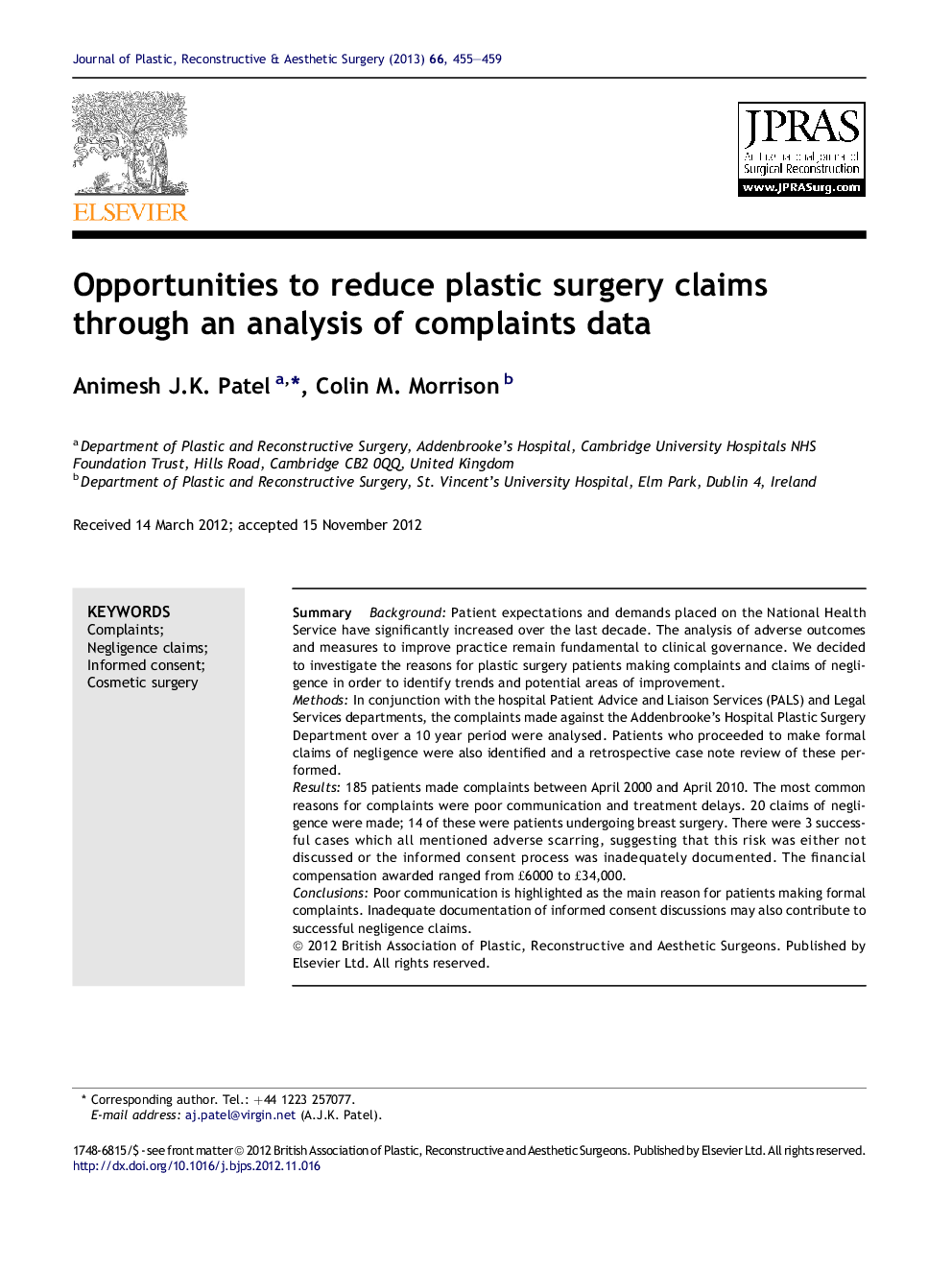| Article ID | Journal | Published Year | Pages | File Type |
|---|---|---|---|---|
| 4118403 | Journal of Plastic, Reconstructive & Aesthetic Surgery | 2013 | 5 Pages |
SummaryBackgroundPatient expectations and demands placed on the National Health Service have significantly increased over the last decade. The analysis of adverse outcomes and measures to improve practice remain fundamental to clinical governance. We decided to investigate the reasons for plastic surgery patients making complaints and claims of negligence in order to identify trends and potential areas of improvement.MethodsIn conjunction with the hospital Patient Advice and Liaison Services (PALS) and Legal Services departments, the complaints made against the Addenbrooke's Hospital Plastic Surgery Department over a 10 year period were analysed. Patients who proceeded to make formal claims of negligence were also identified and a retrospective case note review of these performed.Results185 patients made complaints between April 2000 and April 2010. The most common reasons for complaints were poor communication and treatment delays. 20 claims of negligence were made; 14 of these were patients undergoing breast surgery. There were 3 successful cases which all mentioned adverse scarring, suggesting that this risk was either not discussed or the informed consent process was inadequately documented. The financial compensation awarded ranged from £6000 to £34,000.ConclusionsPoor communication is highlighted as the main reason for patients making formal complaints. Inadequate documentation of informed consent discussions may also contribute to successful negligence claims.
